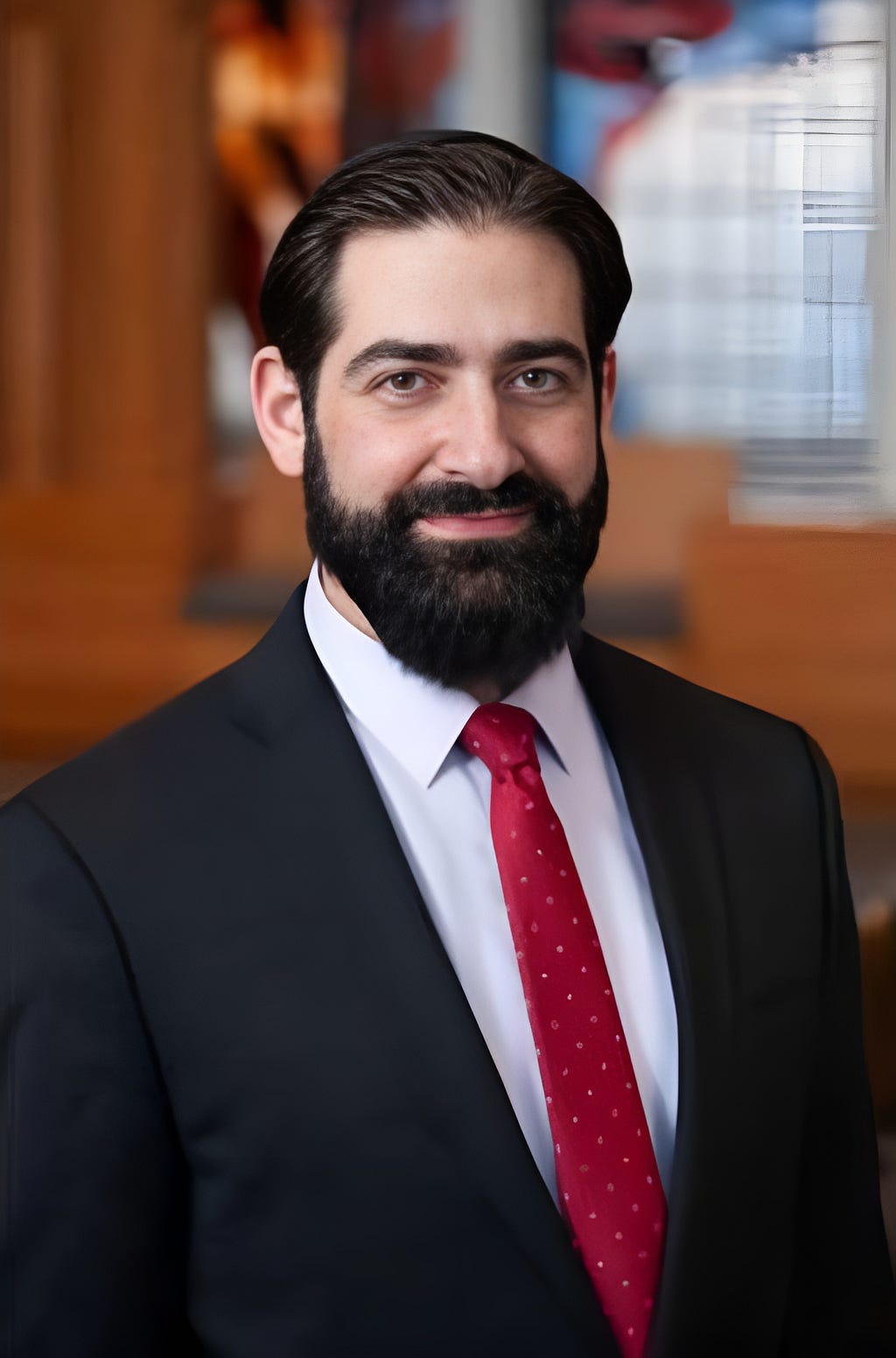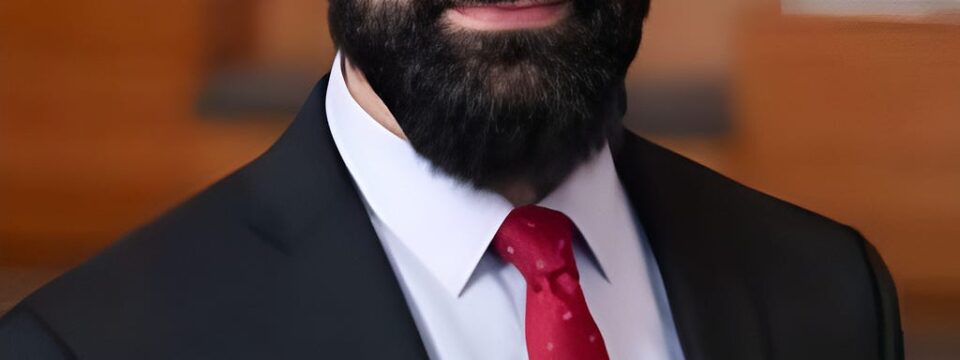Upstanders: How Rabbi David Lerner Of Congregation B’nai Sholom-Beth David Is Standing Up Against Antisemitism, Racism, Bigotry, and Hate

It’s taught in Jewish tradition that the impulse for good is quicker acting than the impulse for bad. What this means is that we know what is right. When we know internally what the right thing to do is, we should just do it and let the chips fall where they may.
An upstander is the opposite of a bystander. A bystander is someone who stands by while others are being bullied, maligned, or mistreated. An upstander is someone who stands up to protect and advocate for the victim. We are sadly seeing a surge of hate, both online and in the real world. Many vulnerable minorities feel threatened and under attack. What measures are individuals, communities, and organizations taking to stand up against Antisemitism, Racism, Bigotry, and Hate? In this interview series, we are talking to activists, community leaders, and individuals who are Upstanders against hate, to share what they are doing and to inspire others to do the same. As part of this series, we had the pleasure of interviewing Rabbi David Lerner.
Rabbi David Lerner is the spiritual leader of Congregation B’nai Sholom-Beth David in Rockville Centre, NY. He has been actively involved in community engagement around the troubling upsurge in antisemitism that has emerged over the past few years. He has engaged both community members and local elected leadership in coming together to tackle these challenges.
Thank you so much for doing this with us! Before we dive in, our readers would love to get to know you a bit better. Can you tell us your “Origin Story”? Can you tell us the story of how you grew up?
I grew up in a Jewish home where the values of caring for others, being an empowered member of the community, and giving of oneself to something greater were always present.
Can you share a personal story of how you experienced or encountered antisemitism, racism, bigotry, or hate? How did that experience shape your perception and actions moving forward?
I grew up hearing stories from my grandfather, great aunt, and great uncle about their survival of the Holocaust. My grandfather was able to escape Poland before the war but his entire nuclear family was murdered and he always carried that with him. My great aunt and great uncle were survivors of Auschwitz and their stories of both betrayal and perseverance had a strong impact on me as a youth. It caused me to understand the value in forging relationships and the impact that individual people can have in fighting for the collective good. It also led me to see the urgency of banishing hatred of any kind before it seeps into mainstream society, where it could cause great damage.
Can you describe how you or your organization is helping to stand up against hate? What inspired you to take up this cause?
When hate threatened our community, we decided that the best way to respond was to confront it in two ways: through policy and through education.
In 2021 and 2022, the Proud Boys hate group marched through our town (Rockville Centre) around the same time that the Goyim Defense League dropped antisemitic flyers on the porches of our neighbors, vilifying Jewish leaders. In response, we engaged with local political leadership, held a powerful press conference against hate in our neighborhood, and held a rally against hate for citizens of all races and religions. It ultimately culminated in policy, where Rockville Centre became the 10th municipality on all of Long Island to adopt the International Holocaust Remembrance Association (IHRA)’s definition of antisemitism.
When it comes to education, we set up the Never Again Committee at our synagogue. This committee’s mandate was primarily to fight antisemitism. Our first plan of action was to set up a joint task force with the Rockville Centre School District under the superintendent, to facilitate Holocaust awareness and education in the schools. We are currently in the process of providing the schools with over 300 Holocaust-related books that they requested to be used for educational purposes and we continue to be in contact with them regarding curriculum and programming.
Could you share an inspiring story that demonstrates the impact your efforts have had on an individual or community?
After the terrorist attacks that occurred in Israel on October 7th, through our dialogue and relationship with village leadership, the village board voted unanimously to hang Israeli and American flags standing together all along the municipal avenue of Rockville Centre. Since that occurred, so many within the Jewish community have come to me — even from out of state — with photos and videos of this show of solidarity, with a sense of genuine appreciation at the support from local government, asking about the approaches they could take in their own cities to develop these ties.
In your opinion, why do you think there has been such a surge of antisemitism, racism, bigotry, & hate, recently?
Throughout history, whenever there has been external pressure on society — be it the isolation of COVID-19, the troubled economy, or some other external threat — people desire a target at whom they can direct their frustrations. Many times, unfortunately, that target has been the Jewish community and other minority groups.
Are there three things the community/society/politicians can do to help you address the root of the problem you are trying to solve?
Yes, they can stand with the Jewish community, not just in word but in deed. They can enact public policies that foster unity within society and facilitate education to combat misinformation. They also have to keep reinforcing the notion that we are all Americans, standing for the shared values of freedom and respecting each individual’s right to the pursuit of happiness and meaning in their own lives. They have to communicate to their constituents that our differences are what make us stronger as a society.
What are your “5 Things Everyone Can Do To Be An Upstander”? If you can, please share a story or an example for each.
1 . Be engaged with your community. Forge relationships with your neighbors and with local officials.
2. When you see something out in public that you know is wrong, say something. When you see a friend say something on social media that you know is wrong, say something. Don’t feel like you are only one person and therefore that your voice doesn’t have that big of an impact. When you feel some way, it’s likely that others feel that way too and when we give voice to our concerns, it gives others the permission to do this, too. As difficult as it may be, sometimes we have to challenge the voices that are the loudest in our society if we feel that what they are saying is wrong.
3. Educate yourself. Don’t share facts without confirming them. Don’t just rely on people from marginalized communities to speak out.
4. Try to forge relationships with people even when they feel differently than you do. Learn to engage in civil dialogue and try to understand the values underlying different beliefs.
5. It’s taught in Jewish tradition that the impulse for good is quicker acting than the impulse for bad. What this means is that we know what is right. When we know internally what the right thing to do is, we should just do it and let the chips fall where they may.
How do you handle the emotional toll that comes with being an Upstander?
You have to always keep in mind the good that you are fighting for. Unfortunately, standing up for what’s right is not always along the path of least resistance. But everyone that has done right for others has seen the impact that it has had on those people. A teacher of mine once told me that when his parent would drop him off at school, he’d put a quarter for charity in one hand and a vitamin in the other. He’d say this one is for your body — pointing to the vitamin — and this one is for your soul — pointing to the coin. Doing something for the soul every day can reinforce neural pathways for good behavior, and over time it just becomes who we are.
How would you answer someone who says: “Hate speech is permitted under the US Constitution. Why are you so worried about permitted, and legal speech?”
Sometimes, just because something is legal does not make it morally right. As a society, we should have underlying moral principles that drive our behavior. It is common knowledge that if our legal fabric is unraveled, it leads to a collapse of society; however, it is also true that the degradation of our moral fabric will also result in the upending of society. The ultimate question becomes — in which kind of society do we wish to live? One that is hateful and divisive or one that is caring and built upon shared values?
What advice would you give to someone who wants to become an Upstander but doesn’t know where to start?
Talk to people that you know who are Upstanders and ask them how they got involved, what keeps them going, and where might the entry points be for someone just getting started.
In what ways can education be leveraged to combat antisemitism, racism, bigotry, and hate?
There’s a colloquial phrase: “Knowledge is the best disinfectant.” The more people can learn about other groups and interact with people who are different than them, the less those people become an abstract ‘other’ and the more we see glimmers of ourselves in their interests, mannerisms, and habits.
Can you please give us your favorite “Life Lesson Quote”? Can you share how that was relevant to you in your life?
Reb Schneider Zelman of Liadi taught that a little bit of light dispels much darkness, meaning that our voice for good is extremely powerful. It can create worlds and inspire people. It can give people permission to shine their light into the world, as well. And when we’re confronted with overwhelming darkness and hate or oppression, our light (especially our collective light) can be an antidote. We should never think that we are too small to have an impact.
Is there a person in the world, or in the US with whom you would like to have a private breakfast or lunch with, and why? He or she might just see this, especially if we tag them. 🙂
Though long gone, I have to say Theodore Herzl, the founder of modern Zionism. He took a negative situation, proposed a solution, and rallied the world behind his cause. Sometimes being an upstander is not just doing good in a moment, but finding a sustainable way to persevere in the long term.
How can our readers further follow your work online?
Much of what I do is mentioned on the synagogue website at https://www.cbsbdrvc.org.
This was very meaningful, thank you so much. We wish you only continued success in your important work!
Upstanders: How Rabbi David Lerner Of Congregation B’nai Sholom-Beth David Is Standing Up Against… was originally published in Authority Magazine on Medium, where people are continuing the conversation by highlighting and responding to this story.
